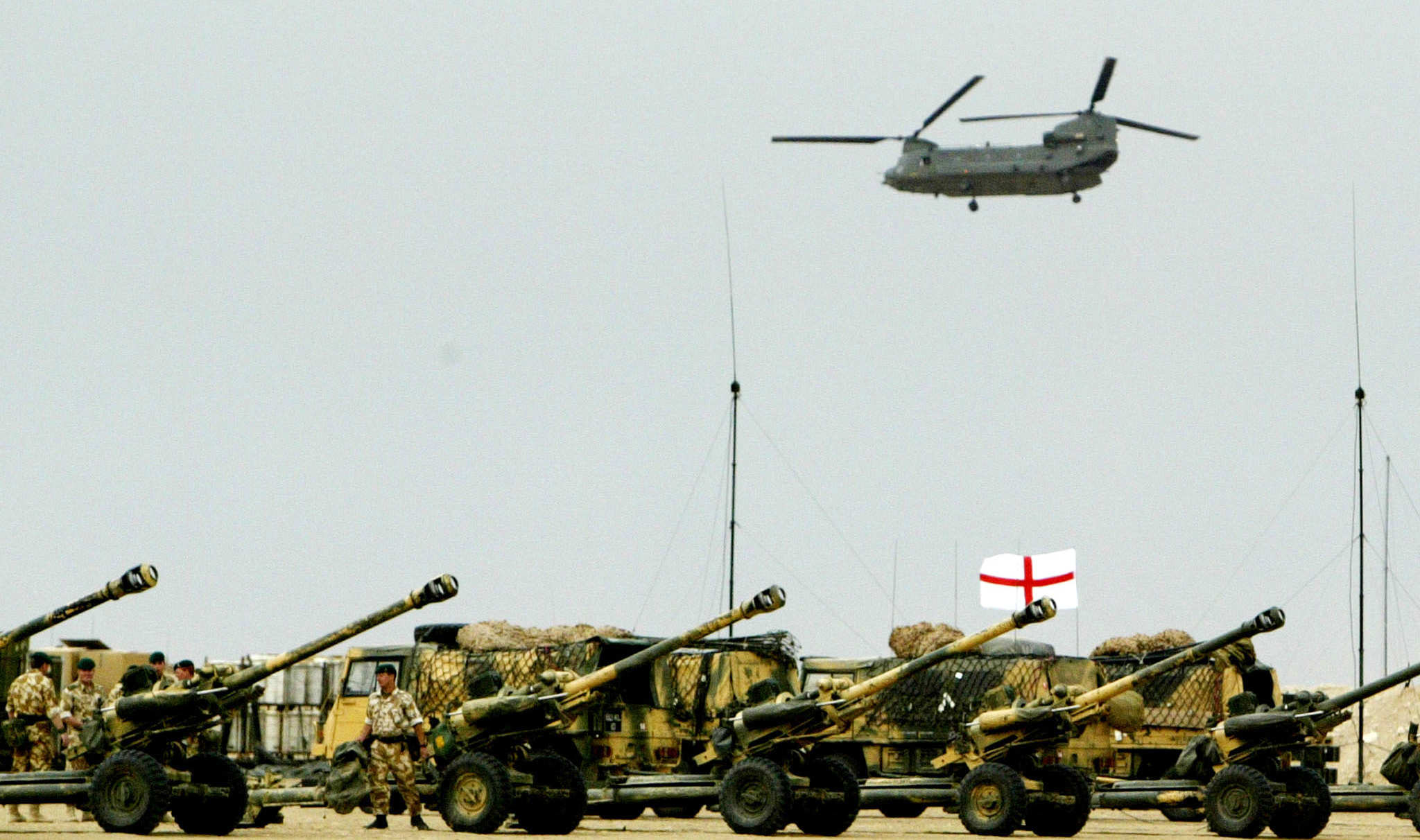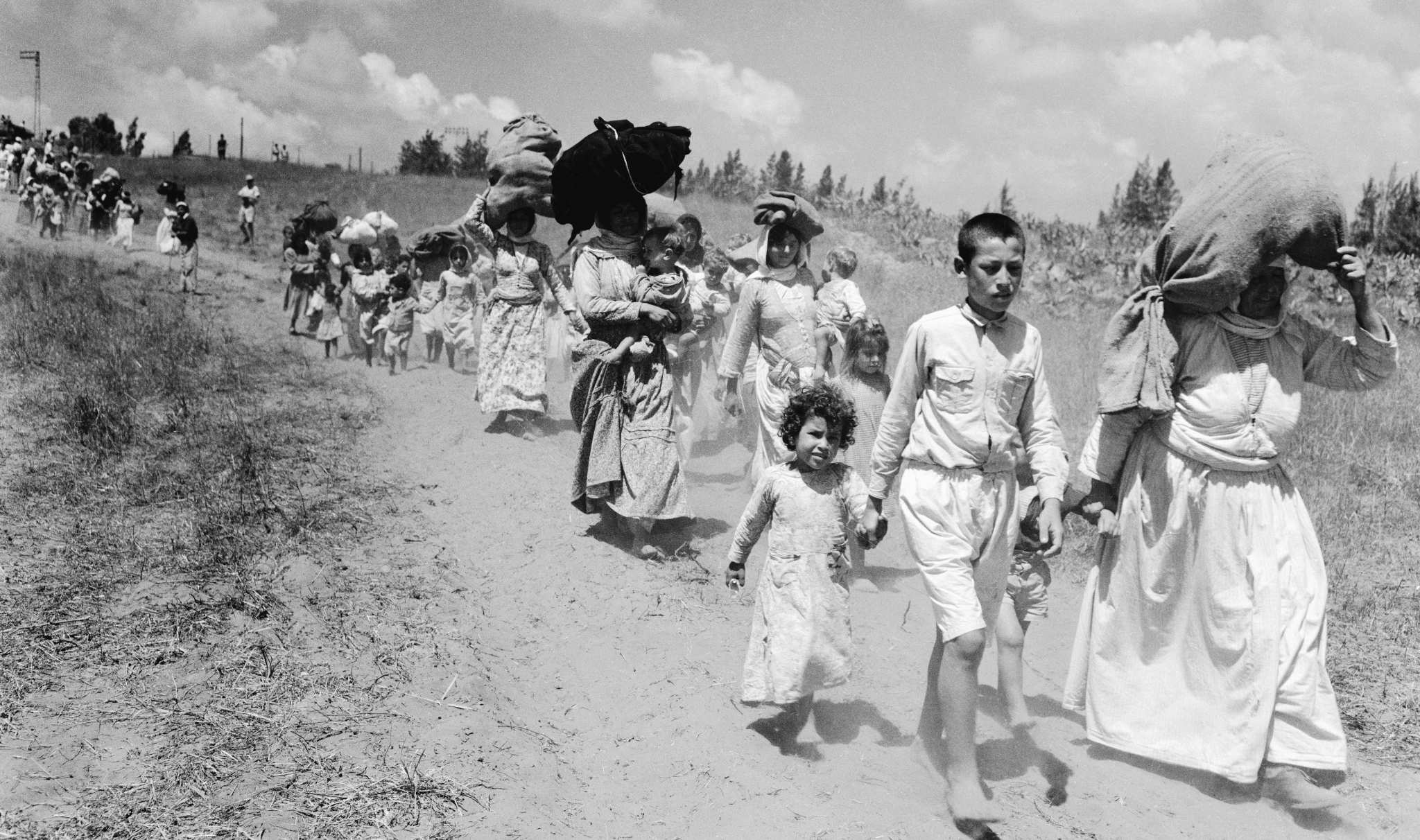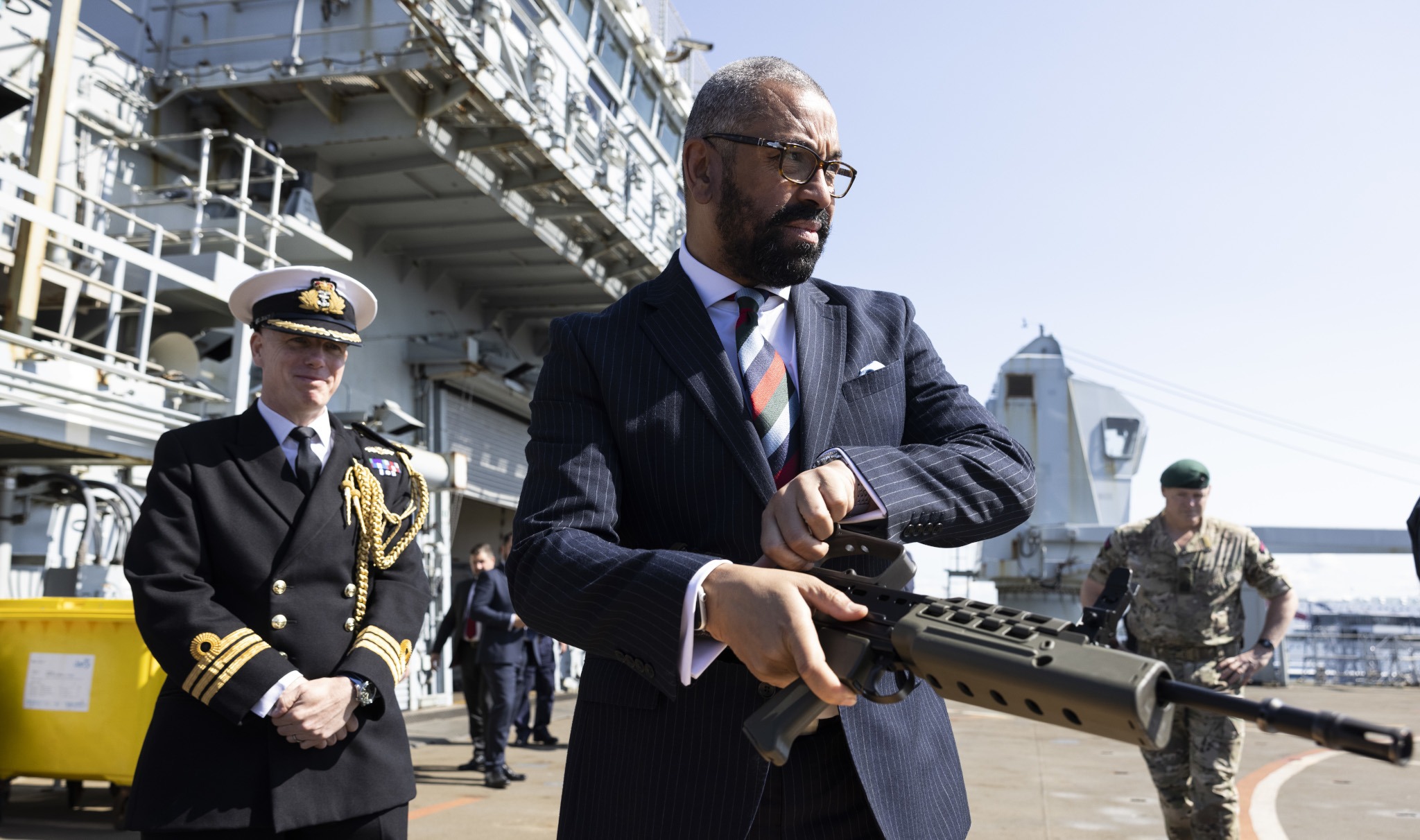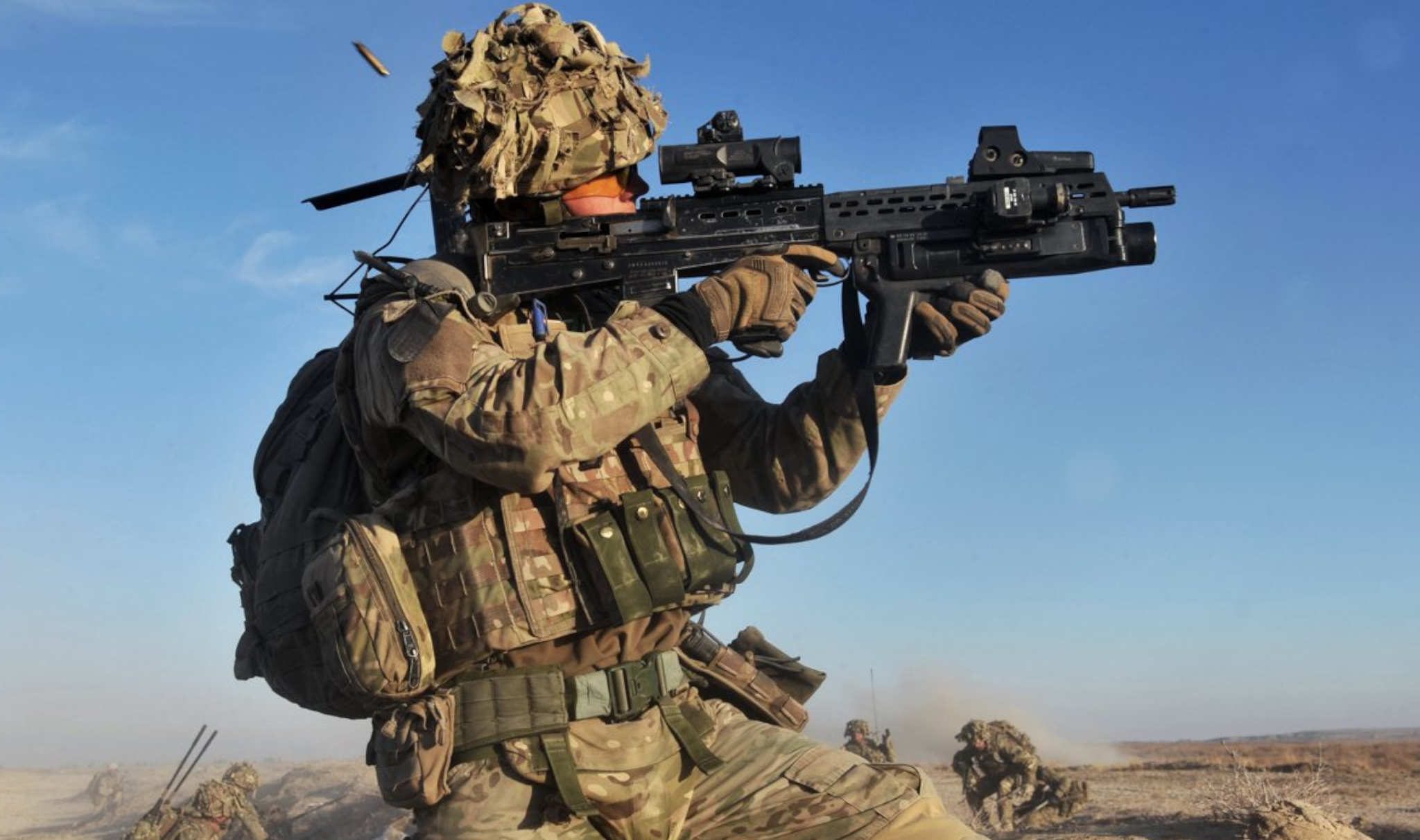The UN secretary general was vilified in Israel for saying, after criticising Hamas’ horrific onslaught that left 1,400 people dead, that it was important to recognise the massacre on 7 October did not take place in a “vacuum”.
He said the Palestinian people had been subjected to 56 years of suffocating occupation.
Antonio Guterres was right. And that vacuum was left by Britain when it abruptly terminated its mandate for Palestine in 1948.
This led to the expulsion by Jewish militia of at least 700,000 Palestinians from their homeland, an estimated 85 percent of those living in what became the new state of Israel — what Palestinians call the Nakba, “catastrophe”.
In a devastating admission cited in his acclaimed book, One Palestine Complete, Tom Segev quotes a senior British official at the time confessing: “The British had never in fact had a policy for Palestine…No policy at all”.
It is perhaps the worst of many examples of Britain’s abuse of power, of its political and military adventures, the product of exceptionalism, and a combination of arrogance and ignorance, that has cost countless lives, mainly in the Middle East.
As many more thousands continue to die, Britain has a lot to answer for.
Cooperation with Israel
Britain abandoned its League of Nations approved mandate for Palestine, leaving Jews and Arabs to fight it out. Ever since, Britain has continued to ignore its responsibilities, including the killings with impunity of Palestinians, the expulsions from their land and the destruction of their homes, in the occupied West Bank.
Prime minister Benjamin Netanyahu baying from the sidelines, illegal Israeli settlers there now total some 700,000. More than 150 Palestinians were killed in the occupied West Bank last year; more than 130 have been killed there over the past months.
“Neither the prime minister nor the leader of the opposition can bring themselves to utter the slightest criticism of Netanyahu and his government”
Keir Starmer, the Labour leader, raised Palestine just twice in his eight years in parliament before 7 October; by contrast, Jeremy Corbyn did so 53 times since 2005. So uninterested was the government that last year it abolished the post of minister for the Middle East, a move it has now overturned.
Instead, the British government has deepened cooperation with Israel in policies ranging from health to technology and military and security policies.
At the time of writing, over 10,000 Palestinians, most of them women and children, have been killed in Gaza. Israel has killed almost as many Palestinian civilians in two weeks as Russia has killed Ukrainian civilians in 20 months, according to the UN.
Neither the prime minister nor the leader of the opposition can bring themselves to utter the slightest criticism of Netanyahu and his government. No end is in sight of the relentless bombing either in Gaza or in Ukraine.
Dealing with Moscow
British governments continued to deal with Moscow after Putin’s occupation of Crimea in 2014. Russian oligarchs continued to use what the City of London, Britain’s menable laws and enticing real estate, had on offer as they increased their riches.
It was not until the full-scale invasion of Ukraine in February 2022 that the British government hastily joined the US and others in imposing sanctions against Russia, with British ministers soon trumpeting their role providing more arms to Ukraine than any other European country.
Ukraine’s top commander, General Valery Zaluzhny, has now admitted that his forces are locked in a “stalemate” with Russia along a frontline that has barely shifted despite months of fierce fighting, and there is no end in sight.
The war in Ukraine has forced Russia into the hands of Iran, supplying that country with military technology in exchange for drones to attack Ukraine. Putin, not slow in accusing the West of hypocrisy, must be delighted that youngsters in Iran are told in school about another British intervention – how in 1953, with the help of the CIA, Britain mounted a coup that toppled Mohammed Mosaddeq.
He was Iran’s first democratically-elected leader whose crime was to nationalise the British Anglo-Iranian Oil Company, later BP. He was replaced by the autocratic Shah, thus provoking a chain of events that was to lead to the 1979 Islamic revolution.
Arming Saddam
Throughout the 1980s British governments secretly sold weapons to the Iraqi dictator Saddam Hussein. They knew he executed his opponents and engaged in gas attacks against the Kurds, but London backed him in his long war with Iran, a policy welcomed by arms companies.
In 2003, Tony Blair enthusiastically joined the American-led invasion of Iraq even though MI6 knew Saddam was in no way responsible for the 9/11 attacks on the US and MI5 knew an invasion would encourage terrorist attacks in Britain.
When evidence emerged that British troops had been torturing Iraqis they had detained, the Ministry of Defence, backed by the government’s law officers, said Britain’s Human Rights Act, which imposes obligations on Britons, including its soldiers, did not apply in Iraq.
Senior government lawyers warned privately that the war was unlawful. What specifically was a clear breach of the Geneva Conventions was the failure to prepare for the consequences, senior British military figures told me.
When later I asked Air Marshal Sir Brian Burridge, commander of British forces during the invasion, to comment on what went wrong, he replied: “It was a national disgrace that, having flown over much of the country for 13 years, you could have not done better in building up a proper intelligence picture. We just didn’t have any intelligence”.
The invasion of Iraq cost between 218,000 and 315,000 civilian lives, according to estimates that are almost certainly too conservative.
Afghanistan, Libya, Kenya
Ill-equipped and badly-trained British troops were engaged in similar abuses in Afghanistan, occupying the country in ignorance of its tribal loyalties, even its geography.
The British-backed, US-led, policy of “decapitating” Taliban leaders led to the recruitment of younger, even more extreme supporters, many of whom are in control of the country now. It is a lesson lost on Israeli governments as they continued to humiliate the Palestinian Authority.
As British troops were occupying Iraq and Afghanistan, Muammar Gaddafi was feted by Blair after the Libyan dictator, former perpetrator of some of the worst terrorist attacks, agreed to give up his chemical and nuclear weapons programme, opening the way to lucrative deals for British companies, notably BP.
When Gaddafi threatened his opponents during the 2011 “Arab Spring” Gaddafi became an enemy once again. Prime minister David Cameron led the calls for air strikes against Libya ignoring his own advice that insurgencies cannot be won by bombing from 15,000 feet.
“Ill-equipped and badly-trained British troops were engaged in similar abuses in Afghanistan”
The House of Commons foreign affairs committee later noted that British-led air strikes, whose consequences continue to inflict death and destruction on Libya were “not informed by accurate intelligence”.
Deeply ingrained in the psyche and ethos of Britain’s military and political establishment is the country’s imperial past, with victories proclaimed on regimental flags, not least in cathedrals and churches of the established religion.
Abuses, including torture, that led to those victories were kept secret, emerging only in disclosures elsewhere or as a result of court cases brought much later by families of the victims.
A case in point are the concentration camps and execution of Mau Mau rebels in Kenya in the 1950s. King Charles’ recent state visit to Kenya has been presented as a brave and enlightened initiative.
Yet his “abhorrence” and “deepest regret” at “unjustified” treatment amounted to mere platitudes, and is regarded as such by many in Kenya. He did not mention the current abuse of Kenyans by British troops there, outrages well documented by Declassified UK.
Partitions
Nearer home, in Northern Ireland, successive British governments also ignored abuses, including blatant gerrymandering of elections. They in effect encouraged recruitment to the IRA by counter-productive aggression and subsequent collusion with Loyalist paramilitaries in the torture and murder.
In 1947, a year before Britain abandoned Palestinians to the new state of Israel, the Labour government agreed to another partition – that the jewel in Britain’s imperial crown should be divided into a mainly Hindu India and a mainly Muslim Pakistan that was itself divided between West and East.
In 1971 after a war of independence, East Pakistan became Bangladesh. The partition of India had led to an estimated one million deaths. Disputes over the partitioning of Kashmir have led to three wars, in 1947, 1965, and 1999.
Partitions promoted by Britain have created states based on religion – in Palestine, India and the six counties of Ulster – an ingredient that has led to particularly bloody conflicts.
Those most wary of Britain’s military interventions are military commanders who have had first-hand experience of the violent fiascos of the past – disasters that have hastened Britain’s decline. They have been at the forefront of those in the West arguing for ceasefires and compromises.
Lord Richards, former chief of the defence staff, for example, has distinguished Crimea from other areas in western Ukraine occupied by Russian forces. “There could be some arrangement over Crimea”, he said last year.
That may seem wishful thinking, as much as the chances of a “two state” solution to the Palestine-Israel conflict. That may seem the case now but must not deflect from the brutal truth that Britain has a profound moral obligation to confront that conflict. It must face up to responsibilities it has so shamefully neglected.





